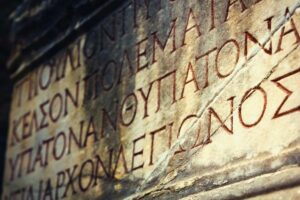“Good neighbourly relations are not just rhetorical niceties. They are practices based on the principles of reciprocity, mutual respect, and a shared understanding of international law. Albanian Foreign Ministry issues provocative map encompassing Greek territory.
The recent publication in the official magazine of Albania’s Ministry of Defence, which depicts Greek territory – including Corfu, Preveza, Ioannina, and Grevena – as part of so-called ‘Greater Albania’, revives irredentist theories that are incompatible with the principles of good neighbourliness and stability in the Western Balkans.
This provocative act adds to the concerns raised in the latest EU Report on Albania, which highlights the urgent need to strengthen democratic institutions in the country.
Yet once again, Greece appears caught off guard – retreating, passive, or indifferent. The Greek Government’s response to repeated provocations is now marked by inertia, withdrawal, bewilderment, and an alarming sense of complacency.
In the past, Greece held a dominant position in the Balkans, both economically and geopolitically. Today’s lack of geopolitical credibility stands in stark contrast to our historical role and the responsibility we have as a pillar of regional stability.
Restoring our stature and influence demands a new mindset, a stronger presence, and far greater resolve. I call on the Government to finally wake up.”
Nikolas Farantouris -Member of the European Parliament
The Corfu Protocol (1914): A Brief History
Signed on 17 May 1914, the Protocol of Corfu formally granted autonomy to Northern Epirus, the Greek-populated regions of Northern Albania, while recognising nominal Albanian sovereignty.
The agreement permitted local self-governance, proportional recruitment of Epirotes into law enforcement, Greek-language education, and cultural rights—recognising the region’s distinct Greek identity
Ratified by the Great Powers in June 1914 and supported by a Delvino assembly of Epirote delegates, it was intended to foster regional stability. However, World War I erupted shortly afterwards and the Protocol was never fully implemented; it was effectively annulled in 1921
This agreement stands as a historical counterexample to modern irredentist claims: it demonstrated a negotiated solution based on mutual respect and legal framework, not force.
During Axis occupation of Greece (1941–44), a number of Muslim Cham Albanians—the Albanian minority in Greece’s Thesprotia region—collaborated with Italian and Nazi German forces, believing they would gain territorial concessions and greater autonomy
These collaborationist groups formed paramilitary units such as Këshilla and Balli Kombëtar Cam, participating in atrocities—including massacres, forced expulsions, and the destruction of villages among Greek civilians
With the Axis retreat in 1944, thousands of Chams fled to Albania. In post-war Greece, many were convicted in absentia for war crimes—over 2,000 death sentences issued, although few were executed, as most suspects had already fled.
The Map has since been pulled done from the Albanian Ministry of Defence website. This does not mean that these plans have been scraped.












